In the vast grasslands of Maasai Mara, where the golden sun kisses the horizon, a graceful figure captures the imagination of all who behold it. The Black-winged Stilt, a creature of ethereal beauty, stands tall amidst the wilderness, its slender black wings stretched outward as if embracing the heavens. As we delve into the realm of this enigmatic bird, we embark on a journey where artistry meets nature, and we uncover the secrets of its existence in this timeless paradise. Join us as we unveil the mysteries of the Black-winged Stilt in Maasai Mara, where its elegance and resilience captivate both hearts and minds.
Table of Contents
- The Elegant Black-winged Stilt of Masai Mara National Park
- A Biodiversity Gem: Black-winged Stilts in Masai Mara National Park
- Feeding Habits and Habitat Preferences of Black-winged Stilts in Masai Mara National Park
- Conservation Efforts and Challenges for Black-winged Stilts in Masai Mara National Park
- Best Practices for Viewing and Photographing Black-winged Stilts in Masai Mara National Park
- Q&A
- Concluding Remarks
The Elegant Black-winged Stilt of Masai Mara National Park
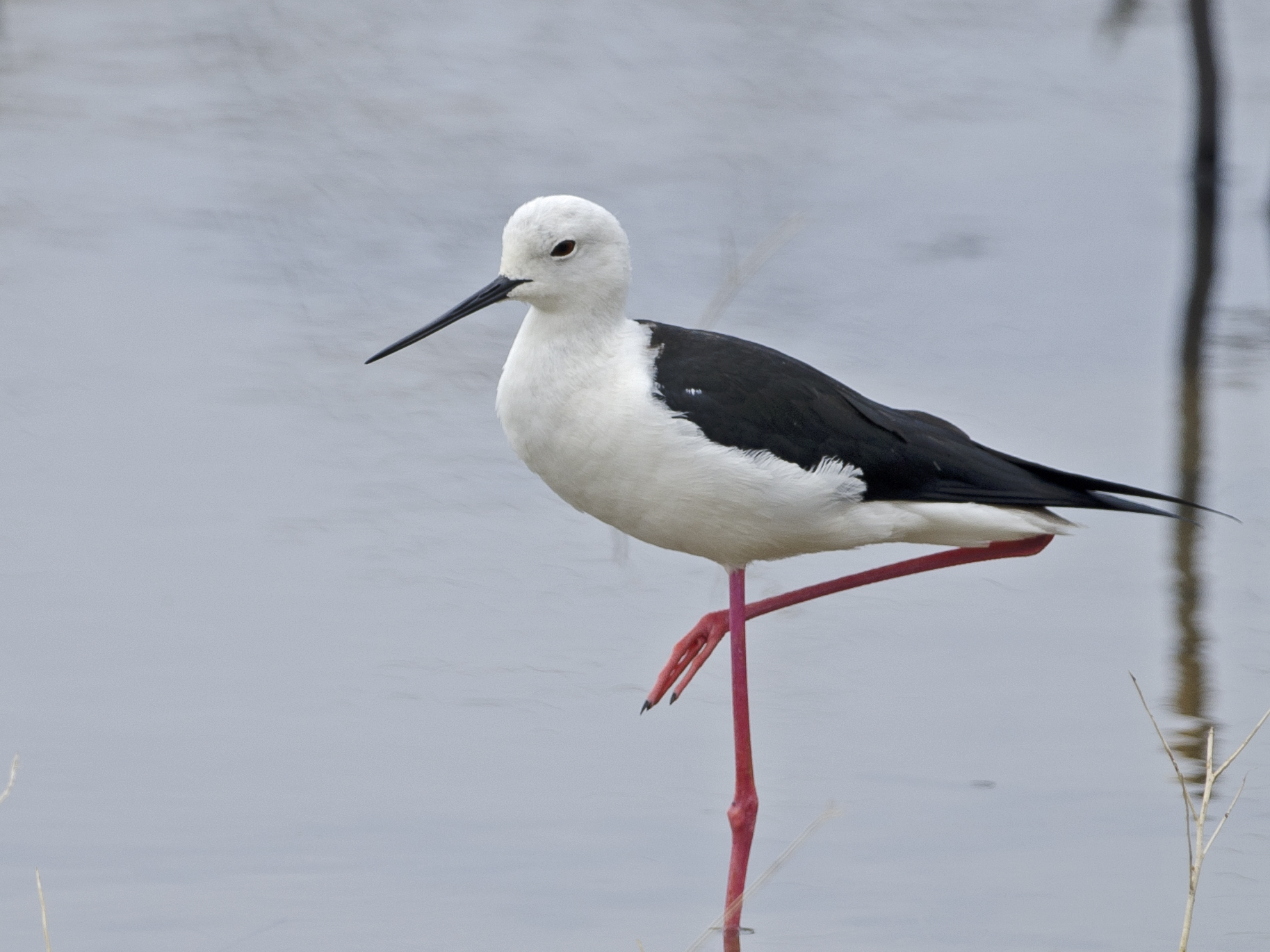

Nestled within the picturesque landscapes of the magnificent Masai Mara National Park, resides the elegant Black-winged Stilt. This gracefully slender bird, with its long, elegant legs and distinctive black and white plumage, is a sight to behold. The park’s diverse habitats and abundant wetlands make it a perfect sanctuary for these striking avian creatures, allowing visitors the rare opportunity to witness their unique behaviors up close.
The Black-winged Stilt is a master of adaptation in its natural habitat, as it effortlessly navigates the marshes, shallow lakes, and riverbanks of Masai Mara. Here are some fascinating aspects of this remarkable species that makes it stand out among its avian counterparts:
- Extraordinary legs: With exceptionally long legs that seem to defy gravity, the Black-winged Stilt effortlessly strides through the shallow waters of the park, showcasing its incredible balance and agility.
- Stunning plumage: The contrasting black wings against its snowy white body create a striking visual contrast, making the Black-winged Stilt a true icon of elegance and beauty.
- Mating rituals: During breeding season, these remarkable birds engage in elaborate courtship displays, involving striking poses, elegant dances, and intricate calls that fill the air with their melodious sounds.
- Nomadic nature: Known for its nomadic tendencies, the Black-winged Stilt exhibits seasonal movements, venturing across the park’s different habitats in search of suitable nesting sites and abundant food sources.
A Biodiversity Gem: Black-winged Stilts in Masai Mara National Park
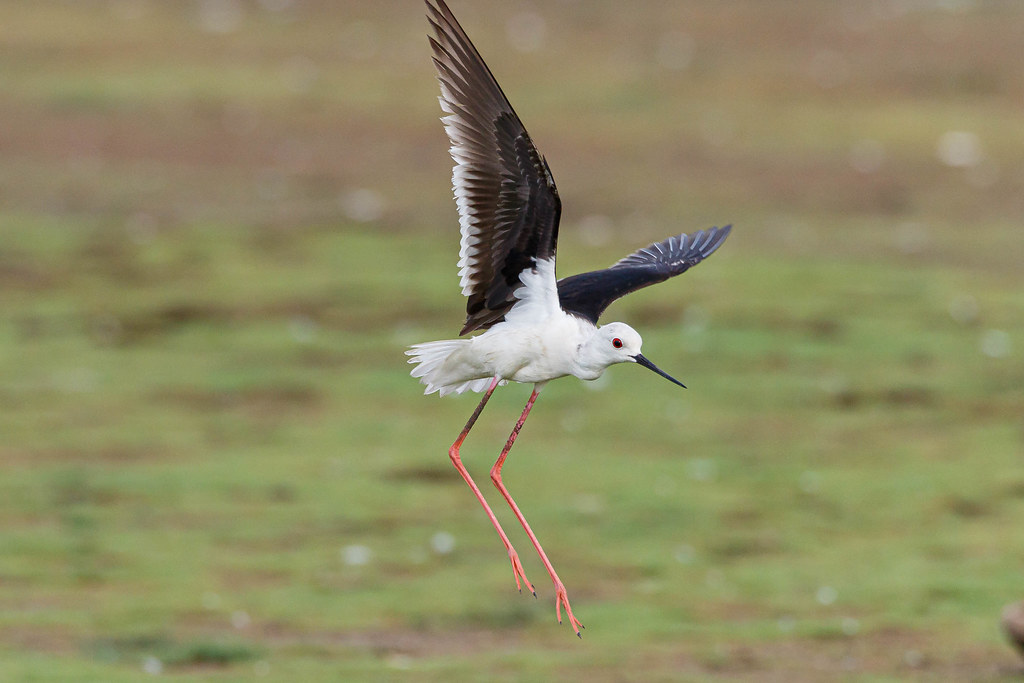
The Masai Mara National Park in Kenya is not only known for its breathtaking landscapes and diverse wildlife, but it is also home to a remarkable bird species known as the Black-winged Stilts. These fascinating creatures are a true biodiversity gem, adding vibrancy and elegance to the park.
Unique Adaptations: One of the most striking features of Black-winged Stilts is their long, skinny legs that seem to stretch on forever. These limbs are perfectly suited for wading through the marshlands and shallow waters of the Masai Mara. With their delicate black wings and slender, graceful bodies, these birds effortlessly navigate their aquatic habitats, feeding on small insects, crustaceans, and seeds.
- Impressive Plumage: The Black-winged Stilts sport a striking black and white coloration, with a jet-black back contrasting against their snowy white underparts. This striking plumage is not only aesthetically pleasing but also plays a crucial role in their survival. The stark color difference helps them camouflage when they are wading in the water or marshes, making it easier for them to catch their prey while remaining hidden from potential predators.
- Skilled Navigators: These stilts are not just beautiful; they are also skilled navigators. With their long legs and nimble bodies, they can maneuver through even the trickiest of wetland terrains. Their exceptional agility allows them to find food in shallow waters, crossing marshy patches with ease, and even gracefully take flight when needed.
- Breeding Prowess: Black-winged Stilts are monogamous birds, forming strong pair bonds that can last several years. During breeding season, these elegant birds create intricately woven nests made of twigs, lined with feathers and vegetation. Here, the females lay their eggs and the male takes charge of incubating them while the female forages for food. This division of labor ensures the survival and growth of their offspring.
Spotting these magnificent Black-winged Stilts in the Masai Mara National Park is truly a rewarding experience. Their unique adaptations, impressive plumage, skilled navigation, and breeding prowess make them a true standout in the park’s rich biodiversity. Whether you’re a bird enthusiast or simply in awe of nature’s wonders, witnessing these graceful creatures in their natural habitat is an absolute must.
Feeding Habits and Habitat Preferences of Black-winged Stilts in Masai Mara National Park
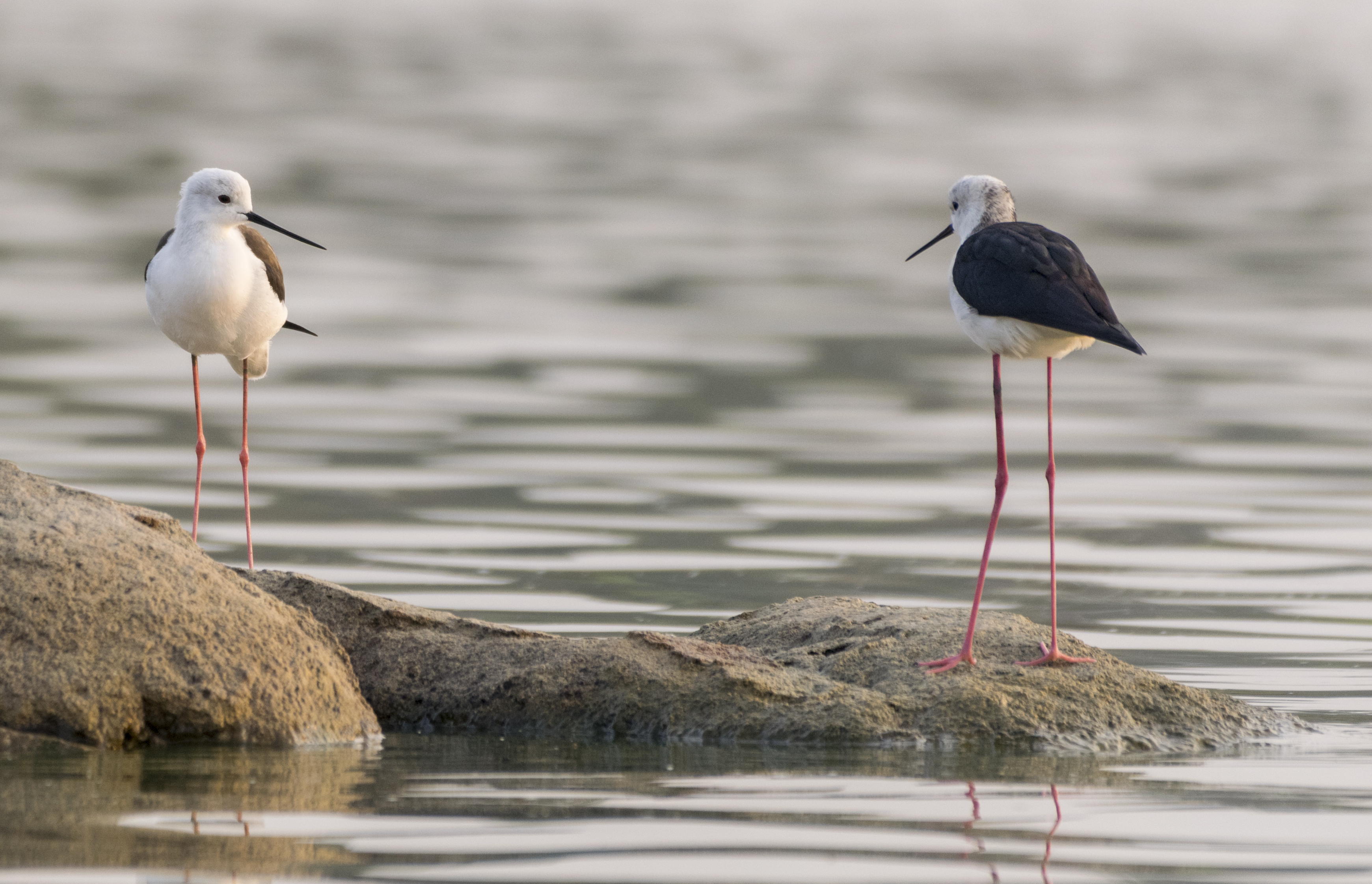
The Masai Mara National Park is a haven for wildlife enthusiasts, offering a diverse array of species that call this magnificent savannah home. Among the unique and elegant inhabitants is the Black-winged Stilt, a fascinating bird species known for its distinct appearance and interesting feeding habits.
Feeding predominantly on aquatic prey, the Black-winged Stilt thrives in the wetland habitats found within the Masai Mara National Park. These long-legged birds gracefully wade through shallow waters in search of aquatic invertebrates, small fishes, and insect larvae. With their slender beaks adapted for probing, they skillfully snatch up their prey with lightning-quick precision.
It’s important to note that the Black-winged Stilt’s feeding habits impressively vary depending on the availability of food sources in different habitats. Whether they are wading through muddy waters, shallow pools, or even flooded grasslands, these versatile birds expertly adapt their feeding techniques to secure their nourishment.
Alongside their diverse feeding habits, the Black-winged Stilt also showcases a strong preference for specific habitats within the Masai Mara National Park. They are often spotted frequented flat, open areas with abundant water bodies, such as lakes, marshes, and riverbanks. These locations provide ideal foraging conditions and nesting sites for these captivating birds.
To observe the feeding habits and habitat preferences of Black-winged Stilts can be a mesmerizing experience. Whether witnessing these striking birds delicately balance on one leg, delicately picking off prey from the water’s surface, or simply admiring their grace as they navigate the diverse ecosystems of the Masai Mara National Park, there’s no denying the awe-inspiring beauty and ecological importance of the Black-winged Stilt.
Conservation Efforts and Challenges for Black-winged Stilts in Masai Mara National Park
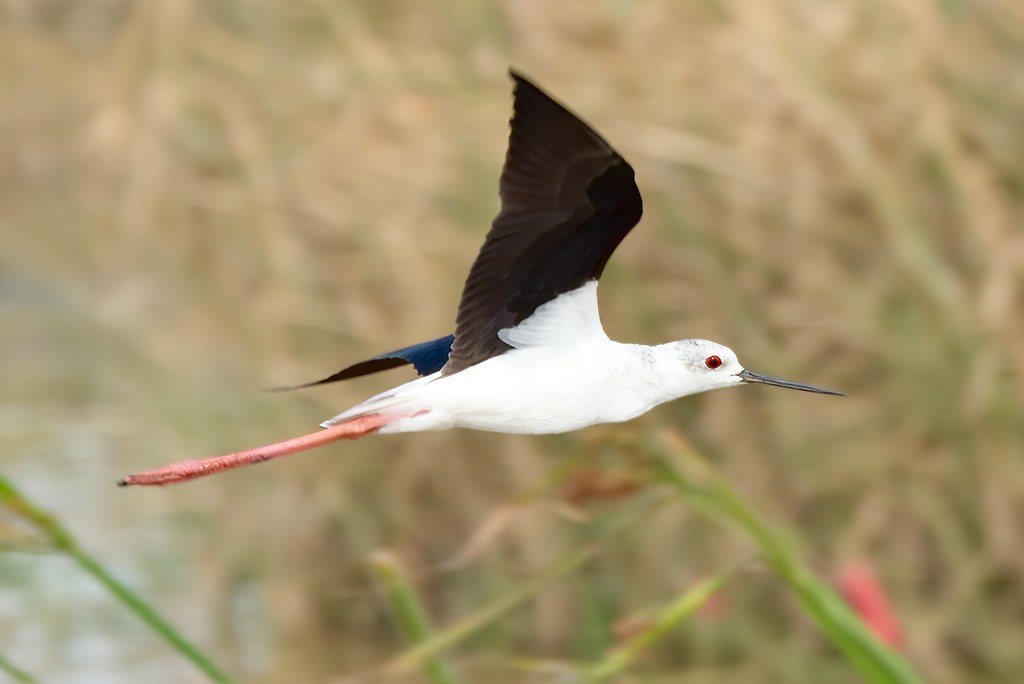
Black-winged Stilts, elegant and delicate wading birds, are an iconic species found in the Masai Mara National Park. Their distinctive long legs and slender bodies make them easily distinguishable among the various bird species that call this park home. However, despite their seemingly graceful exteriors, Black-winged Stilts face several conservation challenges in this unique and diverse ecosystem.
-
Habitat Loss: One of the primary obstacles faced by Black-winged Stilts is the rapid loss of their natural habitats in the Masai Mara National Park. Increased human settlements, agricultural activities, and infrastructure development result in the destruction and fragmentation of their wetland habitats. These birds rely heavily on shallow water bodies such as marshes and lakes for foraging and nesting, making the loss of these crucial habitats a significant threat to their survival.
-
Human Disturbance: Another challenge faced by the Black-winged Stilts is the increasing human disturbance within their habitat. Tourists and safari vehicles often invade the birds’ nesting sites and foraging grounds, causing unnecessary stress and disturbance. This interference disrupts their natural behaviors, including breeding and feeding patterns, which can have long-lasting negative impacts on their population.
-
Predation: Black-winged Stilts also face predation from a variety of natural predators, including large birds of prey and mammals such as monitor lizards and crocodiles. These predators pose a constant threat to both adult birds and their vulnerable chicks. As their habitats become more fragmented, the risk of predation increases, putting additional pressure on the already endangered population.
To ensure the conservation and long-term survival of Black-winged Stilts in the Masai Mara National Park, several measures need to be implemented:
-
Enhanced Habitat Protection: Strict conservation measures should be implemented to protect the wetland habitats crucial for the Black-winged Stilts’ survival. This includes limiting human encroachment, controlling agricultural activities near their habitats, and creating buffer zones to minimize disturbance.
-
Community Engagement: Engaging with local communities residing near the park is vital. Raising awareness about the importance of Black-winged Stilts and their conservation can help foster a sense of responsibility toward protecting these magnificent birds and their habitats.
-
Sustainable Tourism Practices: Encouraging responsible tourism practices within the Masai Mara National Park is crucial to minimize disturbance to the birds. Proper guidelines should be established for tourists and safari operators to minimize their impact on the Black-winged Stilts and their habitats.
By implementing these conservation efforts and addressing the various challenges faced by Black-winged Stilts in the Masai Mara National Park, we can work towards preserving the delicate balance of this unique and thriving ecosystem, ensuring the survival of this beautiful bird species for generations to come.
Best Practices for Viewing and Photographing Black-winged Stilts in Masai Mara National Park
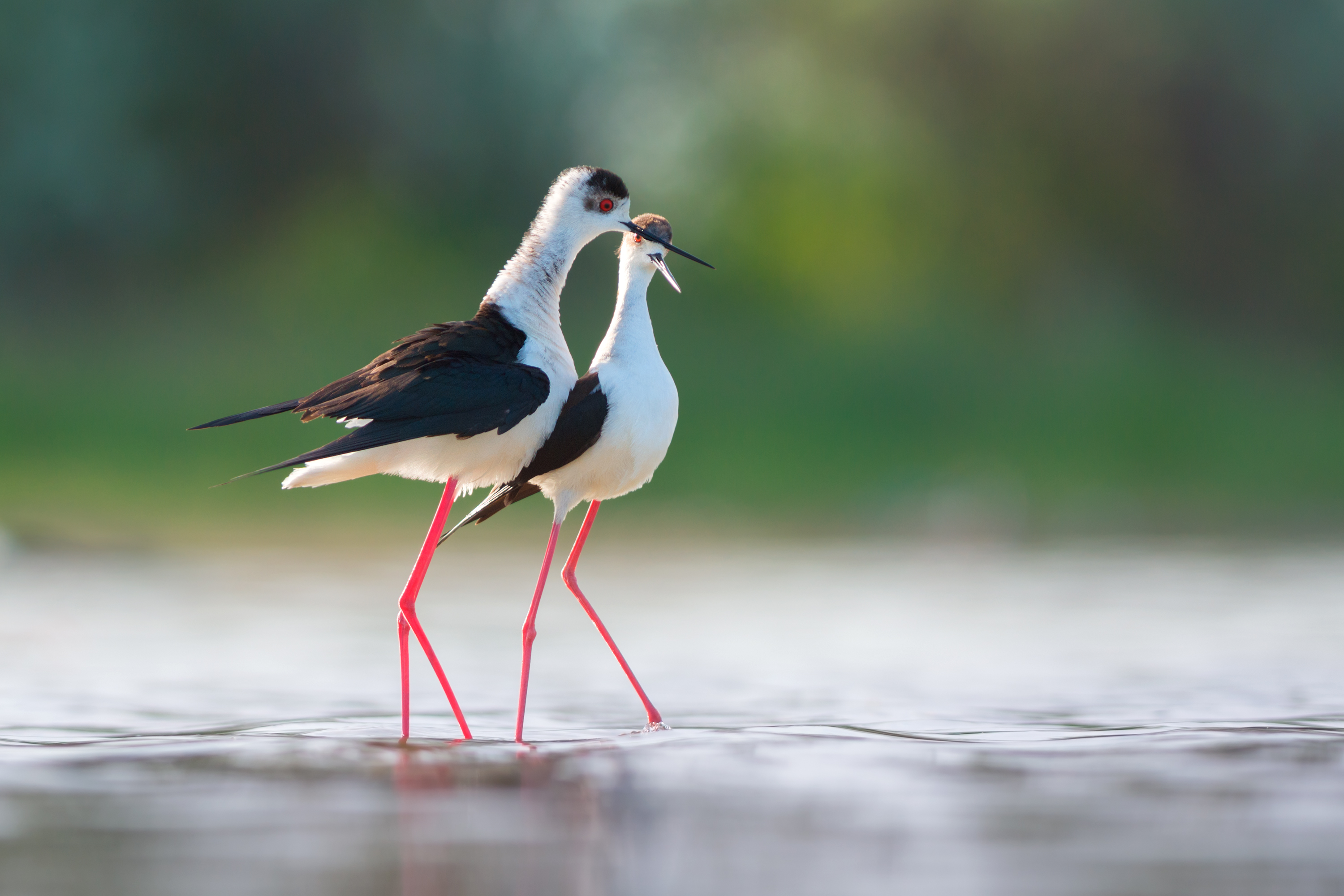
The Masai Mara National Park is a breathtaking destination for wildlife lovers, and one of the most fascinating species you can encounter here is the elegant Black-winged Stilt. To make the most of your experience, we have compiled some best practices for viewing and photographing these majestic birds in their natural habitat.
1. Patience is key: When trying to spot Black-winged Stilts, it’s important to be patient and observant. These birds are known for their graceful movements and foraging behavior, so take your time to scan the area and look for their distinctive long legs and black and white plumage. The marshy areas near the Mara River and marshlands such as Musiara Swamp are typically excellent spots to find them.
2. Use the right equipment: Capturing stunning photographs of Black-winged Stilts is easier with the right equipment. Bring a telephoto lens to get closer shots without disturbing the birds. The stilts are often found in shallow water, so consider using a tripod or monopod for stability. Also, don’t forget to pack extra memory cards and batteries, as you’ll want to take advantage of every opportunity to photograph these magnificent creatures.
Q&A
Q: What unique characteristics make the Black-winged Stilt a prominent bird species in the Masai Mara?
A: The elegant Black-winged Stilt stands out for its slender legs and striking black and white plumage. Its long, thin bill perfectly adapts to foraging in shallow water, making it an excellent swimmer and forager in the wetlands of the Masai Mara.
Q: How does the Black-winged Stilt hunt for food in the Masai Mara?
A: With its slender legs, the Black-winged Stilt effortlessly wades through the shallow waters of the Masai Mara, using its long, needle-like bill to probe the mud and water for small invertebrates, crustaceans, and small fish. It gracefully walks along the edges of wetlands, sweeping its bill back and forth to catch its prey.
Q: What role does the Black-winged Stilt play in the ecosystem of the Masai Mara?
A: The Black-winged Stilt plays a significant ecological role in the Masai Mara. By foraging on small invertebrates, crustaceans, and fish, it helps to maintain a balance in the wetland ecosystem. Additionally, the bird’s nesting habits create habitats for other waterbird species, contributing to the overall biodiversity of the region.
Q: Are there any fascinating breeding behaviors exhibited by the Black-winged Stilt in the Masai Mara?
A: Absolutely! During the breeding season, the Black-winged Stilt engages in impressive courtship displays. The male performs an intricate ritual, raising and lowering its wings, engaging in synchronized dances, and uttering high-pitched calls to attract a mate. Once paired, they construct nests consisting of shallow scrapes on the ground, often hidden among the tall grass near water bodies.
Q: Are there any challenges or threats faced by the Black-winged Stilt species in the Masai Mara?
A: Like many bird species, the Black-winged Stilt faces certain threats, including habitat loss, disturbance, and predation. Human activities, such as wetland drainage and agricultural expansion, can impact their nesting and foraging habitats. Additionally, increased tourist activities and predation by natural predators can affect their population dynamics.
Q: Can visitors to the Masai Mara observe the Black-winged Stilt in their natural habitat?
A: Absolutely! Bird enthusiasts and nature lovers visiting the Masai Mara have a wonderful opportunity to witness the elegance of the Black-winged Stilt in its natural surroundings. Many safari operators and bird watching tours include the wetlands as part of their itineraries, making it possible for visitors to witness the stunning displays and behaviors of these beautiful birds firsthand.
Q: How does the presence of the Black-winged Stilt enhance the overall wildlife experience for tourists in the Masai Mara?
A: The Black-winged Stilt adds an extra dimension to the wildlife experience in the Masai Mara. Its graceful movements, distinctive colors, and impressive courtship displays captivate the attention of visitors. As tourists explore the vast plains and wetlands, the presence of the Black-winged Stilt contributes to the richness and diversity of the wildlife they encounter, adding to the overall marvel of the Masai Mara safari experience.
Concluding Remarks
As we bid farewell to the captivating world of the Black-winged Stilt, our hearts are still intertwined with the grace and elegance of these remarkable creatures. With their impossibly slender legs and bewitching black and white plumage, these avian wonders have effortlessly painted everlasting memories in our minds.
In the vast wetlands and shimmering lakes where they dwell, the Black-winged Stilts reign supreme, their presence a testament to nature’s remarkable artistry. Blending seamlessly into their surroundings, they exemplify the perfect harmony of form and function.
But beyond their striking appearance, the Black-winged Stilts embody a spirit of resilience and adaptability. These masterful aerial acrobats have conquered the challenges of life on the edge, where their slender beaks effortlessly probe the depths of the water in search of delicacies that await. Their ethereal grace transforms each step into a dance, as they tiptoe across the water’s surface, seemingly defying gravity.
Yet, amidst their enchanting world, the Black-winged Stilts face an uncertain future. We, as stewards of this intricate web of life, must take a moment to reflect upon the fragility of their existence. Our actions hold the key to their survival; let us be cautious custodians of their delicate habitats, ensuring that generations to come will also be captivated by their extraordinary allure.
So as we conclude this journey of discovery, let us carry with us the echoes of their soothing calls and the undulating images of their graceful wings, forever etched in our memories. Let us appreciate the splendor of the Black-winged Stilt, a living masterpiece that deserves our admiration and protection. May these captivating creatures continue to grace our skies, reminding us of the breathtaking beauty that lies within the natural world, waiting to be discovered and cherished.




